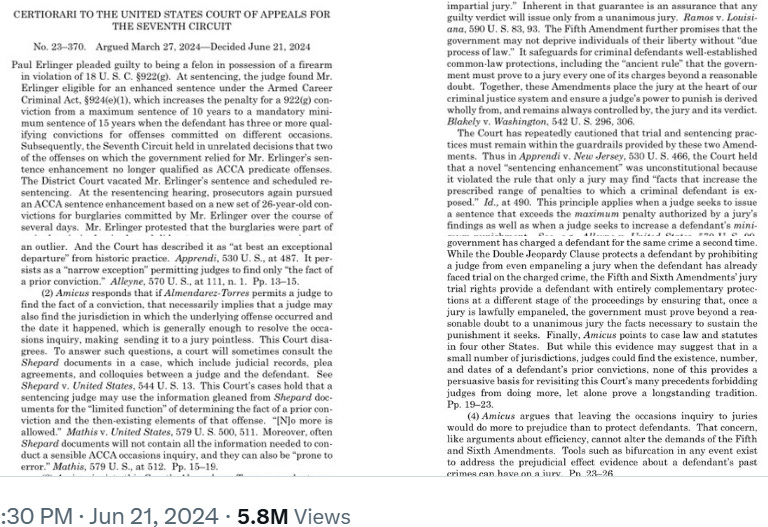SCOTUS Ruling Deems Trump’s New York Conviction Unconstitutional on Two Key Grounds
The Supreme Court of the United States (SCOTUS) delivered two precedent-setting rulings that could significantly impact President Donald Trump’s criminal convictions.
June 25, 2024
In a decisive 6-3 decision in the Erlinger vs United States case, the Supreme Court ruled that juries must be unanimous on each criminal count, a standard not met in Trump’s New York case, where the jury returned a 4-4-4 verdict on the underlying crime.
This ruling underlines that President Trump’s conviction was unconstitutional and must be overturned.
During Trump’s New York trial, the judge had instructed the jury that unanimity on the specific crimes was unnecessary, as long as they agreed that a crime had taken place.
Additionally, SCOTUS ruled that sentencing enhancements cannot be arbitrarily implemented by judicial fiat, further solidifying the protections against unjust legal procedures.
These rulings have profound implications for President Trump’s legal battles, particularly the controversial case led by Manhattan District Attorney Alvin Bragg, and the bogus J6 1512(c) charges and sentencing enhancements that corrupt federal judges have announced they will implement if the Supreme Court nukes 1512(c).
The Supreme Court’s decisions underscore the necessity for unanimous jury verdicts in criminal convictions and proper judicial processes in sentencing enhancements, casting doubt on the validity of current and future proceedings against President Donald Trump.
Share or comment on this article.
Your support is crucial in exposing fake news and in helping us defeat mass censorship.







